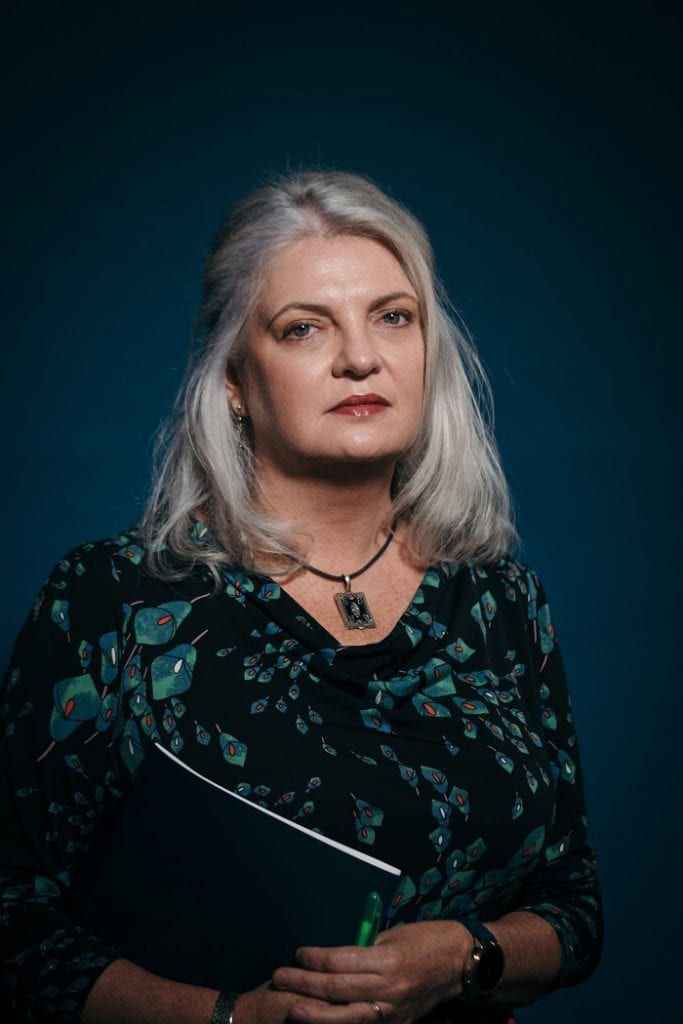 In this Q&A Sue talks about the capacity for UNE and UNEP to support each other, playing to the strengths and weaknesses of each organisation, during what is a period of political, technological and social change.
In this Q&A Sue talks about the capacity for UNE and UNEP to support each other, playing to the strengths and weaknesses of each organisation, during what is a period of political, technological and social change.
She also dreams of relaxing, and perhaps, one day will.
Tell me about yourself?
I’m married, a mum to three kids, step-mum to four others and step-grandma to a host of grandchildren that I love dearly.
I started my career in politics working for a number of backbenchers and Ministers. I loved this work but when I moved to Armidale in 2005, I knew I would need to re-think my career options. I didn’t have to think too hard as I was lucky enough a receive a phone call from UNE, literally as I merged onto the Hume Highway at the start of the move to Armidale, offering me a casual contract. I started at UNE as a HEO5, from memory, working for the then DVC International and Entrepreneurial. I knew within a few weeks that I loved working in education and have done so ever since. During my time at UNE I worked in numerous positions including working for four DVCs and two VCs. My last role at UNE was to establish the Academic Quality and Analytics Unit. I then worked for a year and half or so for a private VET provider in Sydney
Apart from changing jobs within UNE a few times between 2005 and early 2017, I also completed the Emerging Leaders and Managers Program and a Masters of Tertiary Education Management at the University of Melbourne, a Certificate of Design Thinking and Innovation at Darden Business School, and some research methods units at UNE. Through this study I was lucky enough to be asked to co-author a guide on building change management capability for tertiary education, which was great fun.
I am the Chair of the Service Improvement and Innovation in Tertiary Education Conference hosted by the LH Martin Institute (going into my second year) and am a Member of the Panel of Experts, Department of Higher Education, Research, Science and Technology in Papua New Guinea.
What enticed you to apply for the position of CEO of UNE Partnerships and return to UNE?
Having worked at UNE for a long-time and having worked in the VET sector in the interim, I was keen to explore how a strong, vibrant VET arm could add value to UNE’s existing business model. There are plenty of successful models in the sector (Monash College and Access:UTS for example) from which to learn. There is real capacity for UNE and UNEP to support each other, playing to the strengths and weaknesses of each organisation, during what is a period of political, technological and social change. I also see that UNEP can help UNE meet its social equity mission by providing students with access to courses that suit their level of aspiration or re-training needs at AQF Level 3 to Level 6.
What are your immediate plans for UNE Partnerships?
I presented UNEP’s new strategic plan and 2019 budget at the last meeting of UNE Council in 2018. Our big-ticket items for 2019 are to seek CRICOS registration to enable us to support UNE’s international student targets, a stream of work on course renewal and the deployment of a new course design model, and the development of a small number of new courses including a Master’s level pathway program. We are looking at co-branding opportunities for niche courses. We are also starting a corporate volunteering program as part of our civic agenda. This is something that is very important to me as the CEO – I want to see UNEP actively giving back to our community. The program will also help develop staff skills and build working relationships outside our standard work streams.
What are the major challenges that you will have to face in the short-term?
We currently operate an ‘enrol anytime’ model, which is great for students as it provides them with a great deal of flexibility. However, it has its challenges in relation to providing cost-effective student support. As such, we are putting a great deal of thought into how to best address this before we leap into any massive change.
Like many VET providers, UNEP has also been through some rocky financial times which means that implementation of our Strategic Plan and piloting any new innovations will be done on a shoe-string initially. However, I’m a firm believer that financial constraint can be a positive driver for innovation.
How do you relax when you’re not at work? Any hobbies you’d like to share with us?
Interesting question. I dream of being able to relax but it doesn’t appear to be my forte. I like to take on odd projects that keep me busy but are different to my day job. I also enjoy sitting in the garden with a sundowner when the weather is conducive.
